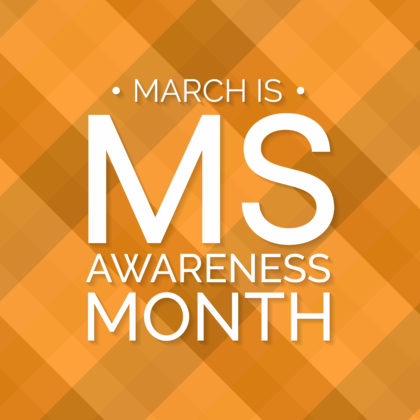Multiple sclerosis, or MS, is a disease of the central nervous system that can cause symptoms throughout the body. It’s believed to be an autoimmune condition, in which the immune system mistakenly attacks normal tissues — in MS, the immune system attacks the myelin sheath that normally protects nerve fibers in the brain, spinal cord, and optic nerve. As the myelin sheath is gradually destroyed, the resulting scar tissue (sclerosis) disrupts the electrical impulses between the brain and other parts of the body.
To help people with the disease, as well as those who have a loved one with MS, a number of societies and advocacy groups have named March Multiple Sclerosis Awareness Month. It’s a time to bring attention to the current state of research on MS, including new ways to diagnose and treat the condition.
Throughout March, you may see orange ribbons adorned with a butterfly symbol. Orange is the official color for MS awareness, and the butterfly represents the shape commonly seen on a magnetic resonance imaging (MRI) scan of a brain of a person with MS.
Most major health organizations have long estimated the prevalence of MS in the United States to be about 400,000 people, but research published in March 2019 in the journal Neurology puts the number of Americans living with MS at 1 million.
Multiple sclerosis and the MS movement – everyone working to change lives as we drive toward a world free of MS- become better known each year. But more must be done to spread the word.
For more information on multiple sclerosis, how to get involved or hear stories, visit the National Multiple Sclerosis Society https://www.nationalmssociety.org/




